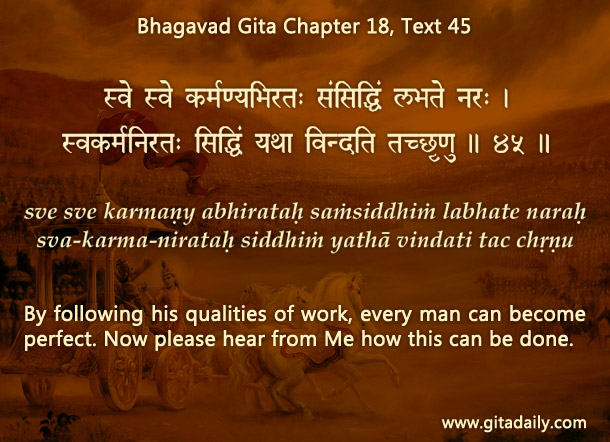When we interact with people, we soon notice that we all are different. What makes us different? Our dispositions.
Gita wisdom explains that our dispositions arise from our body-mind machines. Spiritually, we all are souls, who are parts of the supreme spiritual being, Krishna. Materially, our particular psychophysical natures make us expert at some things and inexpert at other things.
The Gita categorizes human dispositions into four classes: ministerial, martial, mercantile and mechanical. An intellectual can’t earn money the way a businessperson can, nor can a businessperson delve into subtle concepts the way an intellectual can. But both can, while pursuing their respective vocations, lead a productive life – just as both a heavy-duty truck and a sports car can be driven towards a desired destination, even though they can’t be driven in the same manner, for they serve different functions along the way.
Ignoring our disposition, if we crave for some incompatible vocation because it seems more glamorous or lucrative, we set ourselves up for frustration. Conversely, misidentifying excessively with our disposition, if we rationalize our status quo and don’t even try to improve in any way at all, we become stagnant, like drivers who refuse to drive their car anywhere.
Avoiding both extremes of ignoring our disposition and misidentifying with it, we need to choose a vocation harmonious with our disposition. The Bhagavad-gita (18.45) assures that we all can attain perfection by working according to our natures. When we work harmoniously with our disposition, we maximize our social contribution. And whatever be our disposition, we can use it to serve Krishna, thereby becoming purified and gaining increasing realization of our core identity as his joyful parts.
By analyzing our disposition to clarify where we are, not to justify staying there, we can progress smoothly towards social contribution and spiritual realization.
Think it over:
- Why are we all different?
- Explain with examples how our nature determines what we can and can’t do.
- What are the two extreme attitudes with regards to our vocation?
To know more about this verse, please click on the image
Explanation of article:
Podcast:


Leave A Comment